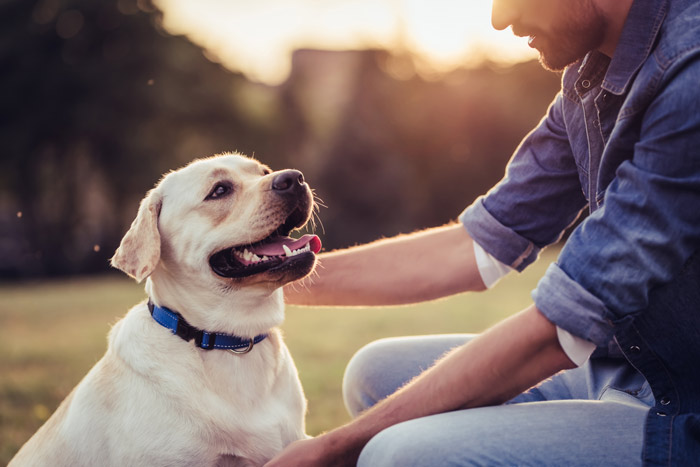Actress and comedian Gilda Radner famously said, “I think dogs are the most amazing creatures. They give unconditional love. For me, they are the role model for being alive.” There is nothing like a furry friend to offer limitless, judgment-free love. A dog or cat doesn’t care if you made a mistake; they just want to spend time with you. The ways people can benefit from interacting with animals are numerous. For someone in addiction recovery, caring for a pet can cultivate confidence, love, socialization, and commitment to a daily routine, all of which support long-term sobriety.
Animal-Assisted Therapy
It is becoming more and more common for mental health and substance abuse professionals to work alongside animals that have been certified to participate in clinical settings. This is referred to as animal-assisted treatment or AAT. In her TED Talk, Dr. Colleen Anne Dell talks about the benefits of therapy dogs in treatment. These dogs can help people in recovery to:
- Open up and make emotional connections
- Regain happiness
- Experience unconditional acceptance
- Deal with fearful experiences
- Feel comforted and encouraged
- Learn how to build trust
While the most common types of animals utilized in AAT are dogs and horses, other animals like cows or goats can be used as well. Animal-assisted therapy, when used in conjunction with talk therapy, helps clients connect with the therapist and makes them more likely to follow the treatment plan.
Pet Ownership
Pet owners know that having animals in their lives is beneficial. In some cases, people get pets who have been trained to be emotional support animals who can help alleviate mental health disorder symptoms. At the very least, the pet can motivate the person to get out of bed and leave the house.
According to the American Kennel Club (AKC), emotional support animals may also be trained to perform specialized tasks like calming a person who is having a panic attack or waking a person with PTSD when they’re having a nightmare. Special training is required for the animals to be considered a psychiatric service animal. Certified service animals can accompany their owners to places where animals are normally not allowed.
But even a regular pet can provide many benefits to their owner. People who have pets require fewer doctor’s visits, and petting an animal for just five minutes can lower blood pressure and increase oxytocin, a “feel-good” hormone.
Is Now the Time?
It can be very tempting for a person new to recovery to jump in and get a pet right after getting sober, but that may not be the best plan, for the following reasons:
- Pets can become an excuse to skip the therapy or recovery support meetings that are part of the treatment plan.
- Pets require time and money that may not be possible to spare in early recovery.
- Pets require commitment and responsibility that may take some time to develop.
- Being focused on a new pet could keep a person who is new to recovery from recognizing signs that they are headed for relapse.
If you’re in your first year of recovery and thinking you might be ready to get a new pet, you might want to start with a low-maintenance pet, like a fish, hamster, or lizard. You could even start with a plant. If you can care for a plant or a fish and keep it healthy over the year, you can then evaluate, with the help of loved ones, a sponsor, and/or a therapist, whether you’re ready for a pet that requires more commitment.
Community Involvement
Some people adore animals, but the timing is wrong to get a pet or it is simply not feasible, for whatever reason, for them to have a cat or dog of their own. In these cases, the person might be able to meet their own need for companionship while also helping the community. Many animal rescues and shelters need volunteers to walk, feed, and interact with pets waiting for their forever homes. Volunteering with animals can offer benefits of:
- A routine
- Something to look forward to
- Exercise
- Emotional support
- A reason to stay sober
Regardless of how animals are involved in the lives of people in recovery, they can be an asset and support. If you or a loved one are struggling with addiction or feelings like you need a boost in your recovery, contact Safe Harbor Recovery Center and speak with an admissions counselor. We can help you determine which course of treatment will best fit your needs.

